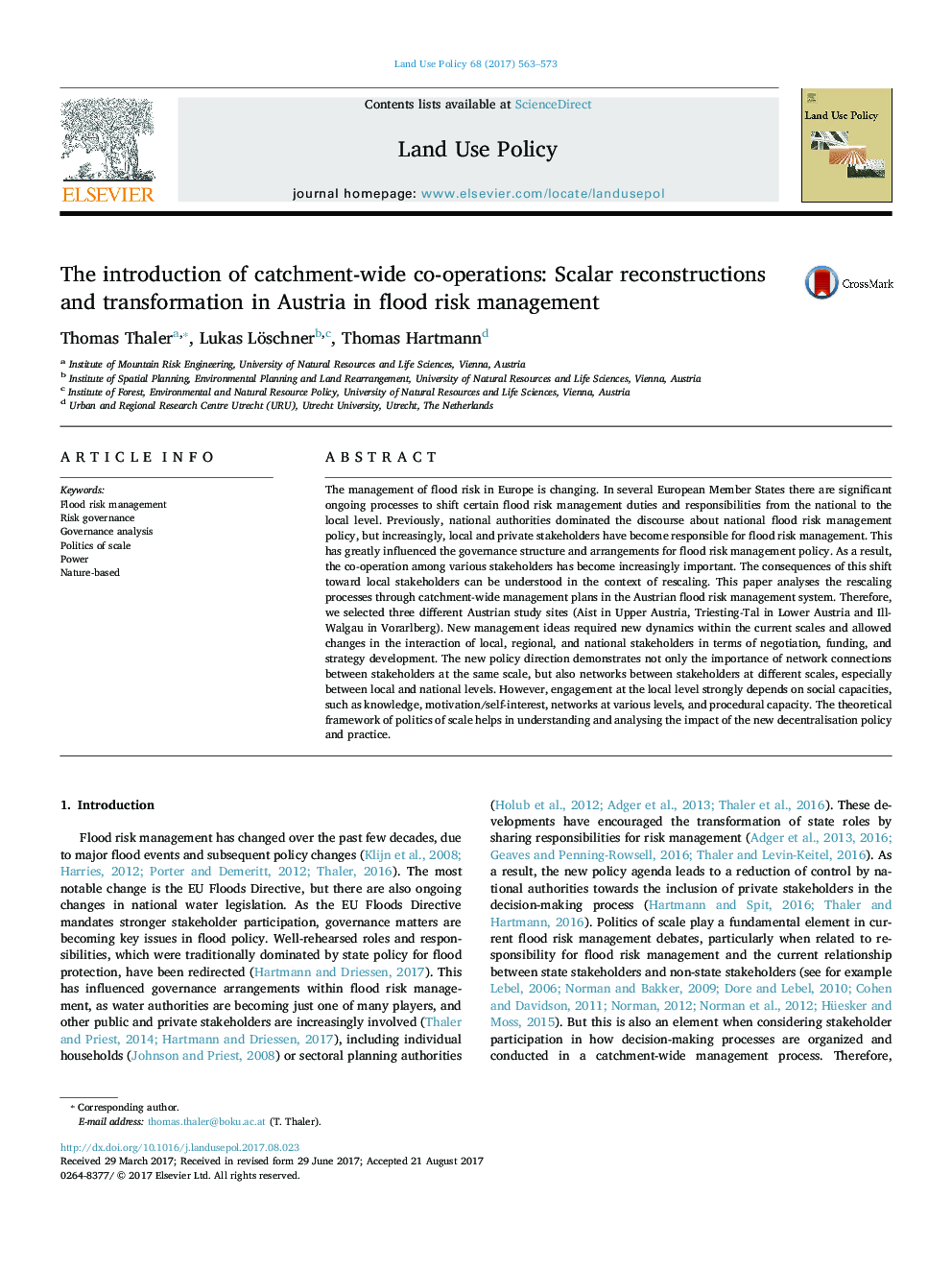| کد مقاله | کد نشریه | سال انتشار | مقاله انگلیسی | نسخه تمام متن |
|---|---|---|---|---|
| 6460598 | 1421815 | 2017 | 11 صفحه PDF | دانلود رایگان |
- We examine three catchment-based flood risk management strategies in Austria.
- We analyse the new role of local, regional and national stakeholders and the changes in actual governance arrangements.
- Development of upstream-downstream co-operations imposes new power relationships and modes of interactions.
- Central conflicts are land use choice in upper and lower part of the catchment.
The management of flood risk in Europe is changing. In several European Member States there are significant ongoing processes to shift certain flood risk management duties and responsibilities from the national to the local level. Previously, national authorities dominated the discourse about national flood risk management policy, but increasingly, local and private stakeholders have become responsible for flood risk management. This has greatly influenced the governance structure and arrangements for flood risk management policy. As a result, the co-operation among various stakeholders has become increasingly important. The consequences of this shift toward local stakeholders can be understood in the context of rescaling. This paper analyses the rescaling processes through catchment-wide management plans in the Austrian flood risk management system. Therefore, we selected three different Austrian study sites (Aist in Upper Austria, Triesting-Tal in Lower Austria and Ill-Walgau in Vorarlberg). New management ideas required new dynamics within the current scales and allowed changes in the interaction of local, regional, and national stakeholders in terms of negotiation, funding, and strategy development. The new policy direction demonstrates not only the importance of network connections between stakeholders at the same scale, but also networks between stakeholders at different scales, especially between local and national levels. However, engagement at the local level strongly depends on social capacities, such as knowledge, motivation/self-interest, networks at various levels, and procedural capacity. The theoretical framework of politics of scale helps in understanding and analysing the impact of the new decentralisation policy and practice.
Journal: Land Use Policy - Volume 68, November 2017, Pages 563-573
